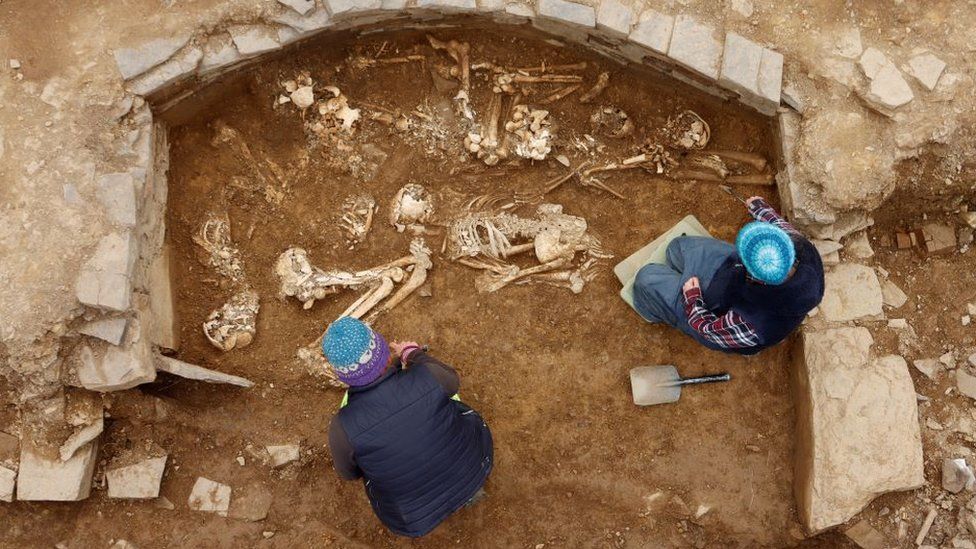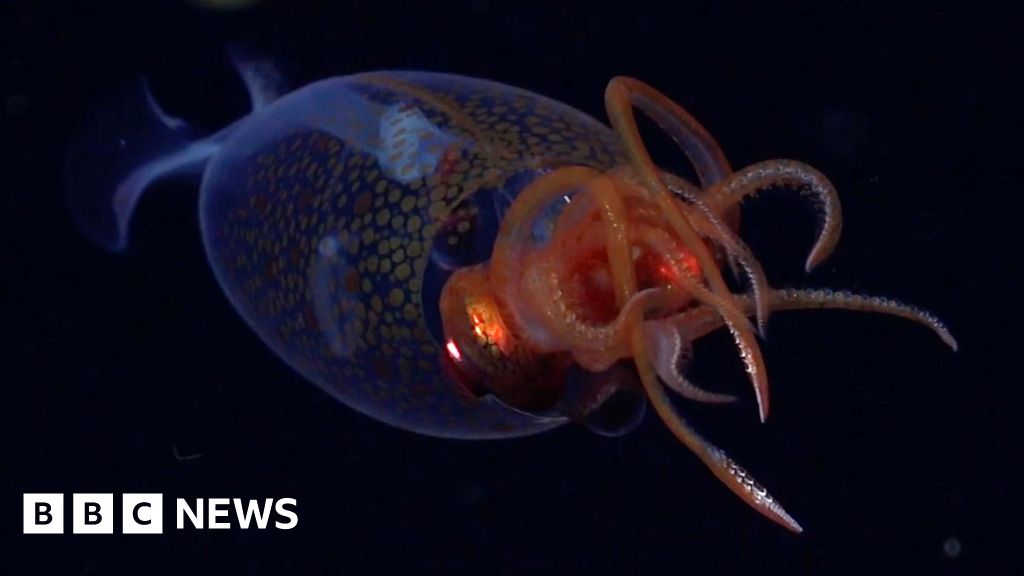ARTICLE AD BOX
 Image source, NMS/Cardiff University
Image source, NMS/Cardiff University
Skeletons have been found at the Neolithic site
Archaeologists say they have uncovered the ruins of an "incredibly rare" 5,000-year-old tomb in Orkney.
The Neolithic site at Holm, East Mainland, was largely destroyed by Victorian antiquarians 127 years ago.
Experts from National Museums Scotland (NMS) and Cardiff University rediscovered the tomb after a search for its precise location.
Despite the damage, the archaeologists have found 14 skeletons of men, women and children.
Individual pieces of human bone were also found.
Local volunteers working with University of Central Lancashire made other finds, including pottery, stone tools and a pin carved from bone.
The three-week excavation led by Dr Hugo Anderson-Whymark, of NMS, and Cardiff's Prof Vicki Cummings has revealed traces of a stone cairn 15m (49ft) in diameter, which had contained a 7m-long (23ft) passage.
The archaeologists said a stone chamber lay at the centre of the cairn, and this was surrounded by six smaller cells.
Image source, NMS/Cardiff University
Image caption,Archaeologists, students and volunteers carried out a three-week dig at Holm
It is believed to be a type of tomb only previously recorded 12 other times in Orkney - islands famed for Neolithic archaeology - and considered to be the "pinnacle" of Neolithic engineering in Scotland.
Much of the site at Holm was damaged by antiquarians, without any records being made of what they found. Stones were also removed for building work.
Dr Anderson-Whymark said: "Orkney is exceptionally rich in archaeology, but we never expected to find a tomb of this size in a such a small-scale excavation.
"It's incredible to think this once impressive monument was nearly lost without record, but fortunately just enough stonework has survived for us to be able understand the size, form and construction of this tomb.'
Prof Cummings added: "The preservation of so many human remains in one part of the monument is amazing, especially since the stone has been mostly robbed for building material.
"It is incredibly rare to find these tomb deposits, even in well-preserved chambered tombs and these remains will enable new insights into all aspects of these peoples' lives."

 1 year ago
41
1 year ago
41








 English (US) ·
English (US) ·